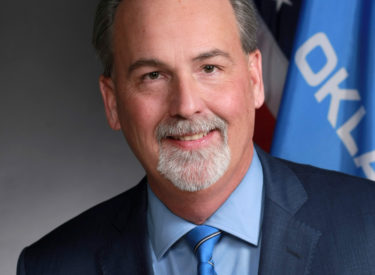Committee Deadline
Ponca City Now - March 1, 2019 4:00 pm

By Sen. Bill Coleman
This week was the deadline to report bills out of committees. We started with around 1,060 Senate bills in committee. Around 80 have already been approved by the full Senate and sent on to the House and nearly 460 are on Senate General Order. The remaining bills weren’t heard or failed and will have to wait until next session to be reconsidered.
Among those measures was my SB 287, which received unanimous approval in the full Appropriations Committee and now moves to the full Senate. Continuing to reform our criminal justice system, specifically focusing on efforts to decrease our prison population, which costs hundreds of millions of dollars each year, is our main goal. We’re trying to find ways to help nonviolent offenders, many of whom suffer from addiction or mental illness. Incarceration doesn’t help treat their issues but can actually make them worse. Lack of education and extreme poverty also play a role.
SB 287 tackles our state’s “habitual offender” statute, which can double and triple sentences giving many a life sentence for nonviolent offenses, a harsh sentence many murders and rapists don’t even receive.
Studies have found that Oklahoma prisoners serve nearly 70 percent longer for property crimes and 80 percent for drug crimes than the national average. Our state has the highest incarceration rate in the nation and our inmates are serving longer than others as well. We must change this.
SB 287 limits the enhancement for people who commit non-violent, non-sexual felonies with limited criminal history to a period equal to the maximum for a first offense plus an additional quarter of the maximum.
Instead of being tough on crime, we’ve got to be smart on it. We must address the issues that cause nonviolent offenders to commit crime and get them the help, counseling, treatment or job training they need to become independent, productive citizens rather than a financial drain on our state being warehoused with no help.
According to Oklahomans for Criminal Justice Reform, this change could decrease our state’s prison population up to 17 percent within a decade. The nonpartisan organization estimates that if this change isn’t made, the prison population will have grown to 31,589, but with this new law would decrease to 26,311 (a difference of 5,278).
According to the Department of Corrections, the average annual cost to house one inmate today is $17,860. That number can be lower or as high as $80,000 for senior citizens or those with physical disabilities or chronic illnesses.
Based on the average, Oklahoma could see an overall savings of nearly $94.3 million annually – funds that can be diverted to treatment and other programs for these individuals. Then we must also remember the economic boost of getting citizens back into the workforce.
As for my other bills, SB 128 dealing with on-call pay for state employees wasn’t heard in the Appropriations Committee. This was a request bill by the OPEA. It sought to standardize state employee compensation for on-call status, where employees are required to remain at, near or able to return to work when called upon after regular business hours.
Current law requires state agencies to compensate an employee for a minimum of two hours, if the employee responds to a call and is required to report back to work while on-call. On-call status is a regular job requirement for many state employees, but they’re inconsistently compensated. I’ll continue to fight for this issue next session.
SB 390 dealing with ad valorem taxes for wind entities wasn’t given a hearing in the Finance Committee. The House has a similar measure and we’re hoping to get that one through the process.
It was my goal this first year to learn the ins and outs of getting a bill through the legislative process rather than doing what many freshmen do, which is carry as many bills as possible, getting overwhelmed and having little success in the end. This first year, I’m focusing on building relationships, learning the process and what’s really important and will help our district and the state overall.
In closing, I want to thank the teachers from Ponca City and Skiatook for stopping by the office. I also enjoyed having lunch with folks from Pioneer Tech.
You can contact me at the state Capitol by calling (405) 521-5581 or by email at [email protected].



